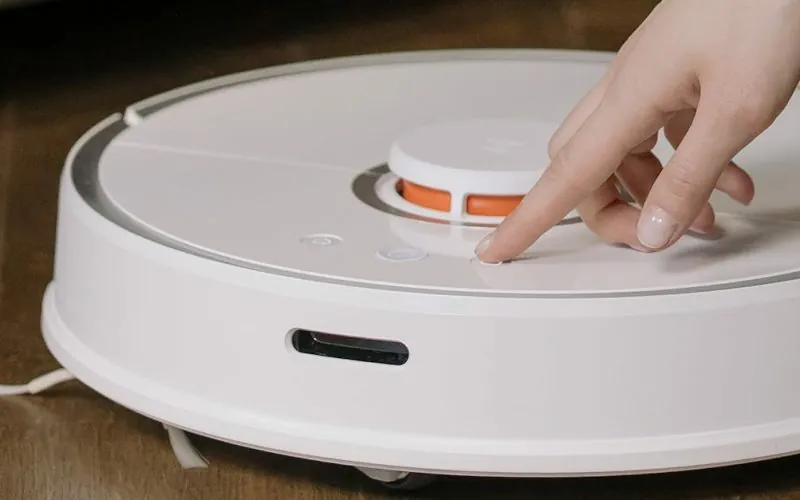Table of Contents
ToggleKeeping spaces and surfaces around the home clean isn’t just about impressing guests or avoiding the dreaded “what’s that smell?” moment. It’s a crucial part of maintaining overall hygiene that can significantly impact health and well-being. After all, who wants to share their living space with a dust bunny family or a rogue crumb colony?
Think of your home as a stage: a clean set makes for a stellar performance. When surfaces sparkle and spaces breathe, everyone feels better. Plus, a tidy home can boost mood and productivity. So grab that mop and put on your favorite playlist—it’s time to turn cleaning into a dance party while ensuring your home stays a healthy haven.
The Importance of Home Hygiene
Maintaining home hygiene directly influences overall well-being. Clean environments reduce the risk of illness by eliminating germs and bacteria. Dust, allergens, and dirt can trigger allergies and respiratory issues, making regular cleaning vital for health.
Additionally, cleanliness promotes mental clarity and reduces stress. Organized spaces lead to a more productive atmosphere, contributing to a positive emotional state. Studies show that decluttering enhances focus, allowing for better task management.
A tidy home creates a welcoming environment for guests, reflecting personal care and consideration. First impressions matter, and a clean space often leads to increased comfort for visitors. Moreover, well-maintained surfaces and spaces prevent pest infestations, which can complicate hygiene efforts.
Incorporating cleaning into daily routines fosters a consistent level of hygiene. Simple tasks like wiping down surfaces, vacuuming, and organizing contribute significantly to overall cleanliness. Everyone can participate in these tasks to share responsibility for the home’s health.
Setting a schedule for cleaning makes tasks manageable and less overwhelming. Planning specific days for deep cleaning tasks, such as bathroom scrubs or kitchen sanitation, helps maintain high hygiene standards. Staying consistent influences a home’s appearance and its inhabitants’ health.
Prioritizing home hygiene not only benefits individuals but also promotes a healthier, happier living space for everyone.
Key Areas to Focus On
Focusing on key areas within the home enhances hygiene and promotes a healthier living environment. Attention to specific spaces ensures cleanliness and reduces potential health risks.
Living Room
The living room often serves as a gathering space. Regularly dusting surfaces helps eliminate allergens that aggravate sensitivities. Vacuuming carpets and rugs captures dirt particles, improving air quality. Cleaning upholstery prevents the buildup of dust mites. Wiping down frequently used items like remote controls and light switches maintains a germ-free environment.
Kitchen
The kitchen requires consistent attention due to food preparation activities. Cleaning countertops and stovetops daily prevents contamination and keeps pests away. Regularly sanitizing sinks eliminates bacteria. Emptying the trash frequently and cleaning the bin reduces odors. A clean refrigerator contributes to food safety, so checking expiration dates and organizing shelving helps manage cleanliness.
Bathroom
Maintaining bathroom hygiene is essential for health. Cleaning sinks, faucets, and countertops with disinfectant prevents the buildup of germs. Regularly scrubbing toilets minimizes the risk of infections. Wiping mirrors removes water spots and keeps them clear. Changing towels often prevents odors, and ensuring proper ventilation reduces moisture accumulation, which can lead to mold growth.
Effective Cleaning Practices
Maintaining cleanliness around the home is vital. Effective cleaning practices contribute significantly to overall hygiene and well-being.
Daily Routines
Incorporating daily cleaning routines ensures surfaces stay germ-free. Wiping down high-touch areas like doorknobs, light switches, and remote controls should happen every day. Taking a few minutes to sweep or vacuum high-traffic zones prevents dust accumulation. Cleaning the kitchen after each meal significantly reduces bacteria proliferation. Regularly sanitizing bathroom surfaces keeps germs at bay. Additionally, organizing clutter makes daily tasks easier and more efficient. Establishing a consistent schedule simplifies home upkeep, allowing for a healthier living space.
Deep Cleaning
Deep cleaning requires a more thorough approach. Planning for deep cleaning sessions once a month can tackle areas often overlooked. Focus on rooms like the kitchen and bathroom, ensuring appliances and fixtures receive attention. Scrubbing floors, cleaning behind appliances, and washing curtains eliminate hidden dust and allergens. Consider sanitizing carpets and upholstery to reduce microbial growth. Focus on deep cleaning blinds and vents to enhance air quality. Engaging in these practices promotes a healthier environment and improves overall home hygiene.
Health Benefits of Maintaining Clean Spaces
Maintaining clean spaces promotes numerous health benefits. Regular cleaning reduces the presence of harmful germs and bacteria, lowering the risk of illness. A clean home environment also minimizes dust and allergens, which can trigger respiratory issues and allergies.
Having a tidy living environment provides mental clarity. Clutter-free spaces help reduce stress and improve focus, leading to increased productivity. It’s essential to recognize that cleanliness creates a welcoming atmosphere for guests, enhancing social interactions.
Specific areas of focus enhance overall hygiene and health benefits. Living rooms benefit from frequent vacuuming and dusting, which remove irritants from surfaces. Kitchens require daily cleaning of countertops and utensils to prevent contamination and unpleasant odors.
Bathroom hygiene plays a vital role in health. Cleaning sinks, toilets, and faucets with disinfectants, combined with changing towels regularly, helps prevent the spread of germs. Proper ventilation further prevents mold growth, ensuring a safer environment.
Incorporating regular cleaning routines into daily life makes maintaining hygiene simpler. Simple tasks like wiping surfaces and vacuuming high-traffic areas can significantly improve overall cleanliness. Setting a schedule for deeper cleaning sessions enables homeowners to regularly address neglected spots.
Essential practices include organizing clutter to streamline daily cleaning tasks. Effective strategies involve prioritizing high-touch surfaces and ensuring frequent sanitization. Regular attention to these areas fosters healthier living, supporting physical and mental well-being.
Maintaining cleanliness in home spaces and surfaces is crucial for overall hygiene and well-being. A clean environment not only minimizes the risk of illness but also enhances mental clarity and reduces stress. By incorporating regular cleaning routines into daily life, individuals can create a welcoming atmosphere that promotes health and productivity.
Embracing cleaning as a positive activity can transform mundane chores into enjoyable moments. Whether it’s through music or a structured schedule, making cleanliness a priority leads to a healthier living space. Ultimately, a commitment to home hygiene fosters a happier and more vibrant home for everyone.





